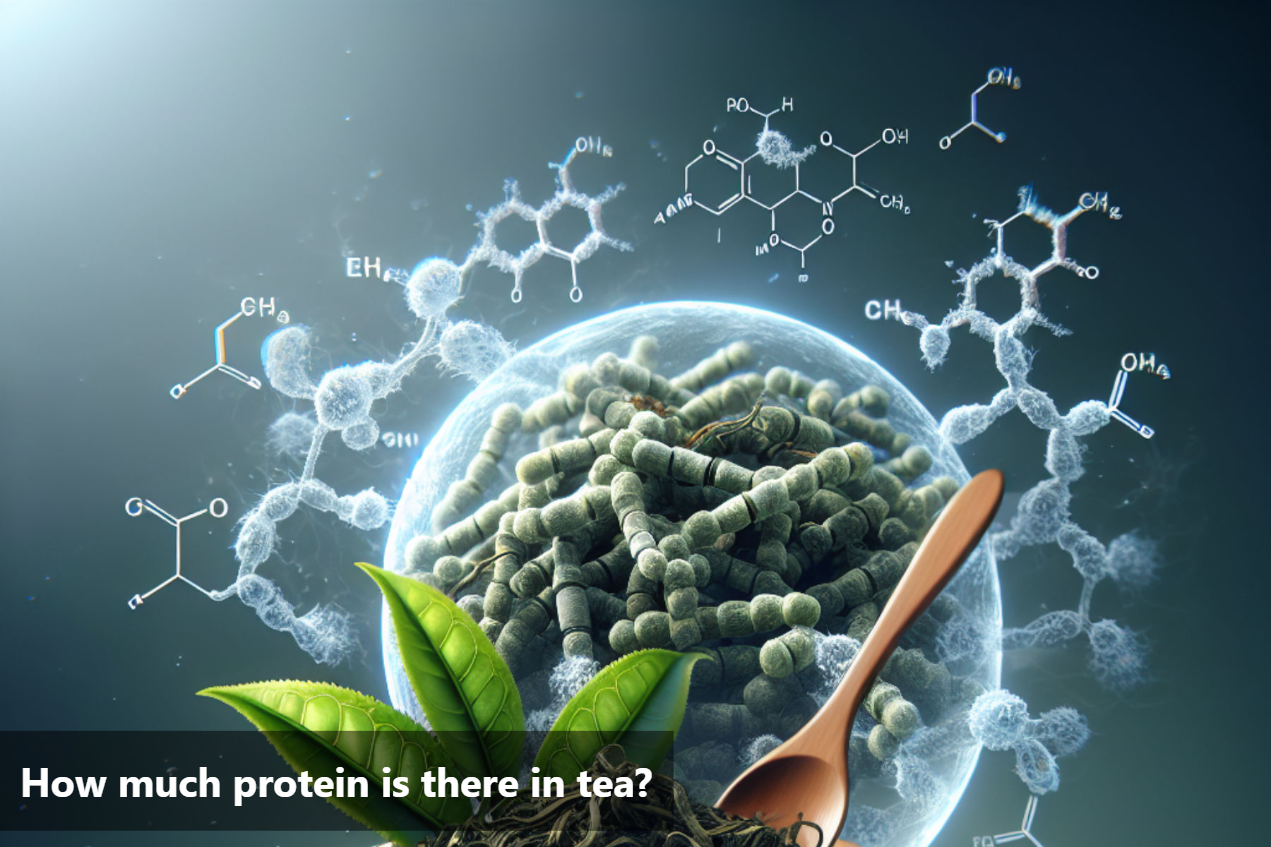
How much protein is there in tea?
Protein plays a vital role in our overall health and well-being. When it comes to tea, most people may not associate it with protein content, but surprisingly, tea contains amino acids which are the building blocks of protein.
Incorporating protein-rich foods in our diet is necessary for muscle growth, tissue repair, and enzyme production. Proteins are also important for the production of hormones and other essential chemicals in the body. Tea, in addition to its refreshing taste and antioxidant properties, provides a source of protein through the amino acids present in its leaves. This unique aspect adds another layer of benefit to the already beloved beverage.
Understanding the presence of protein in tea sheds light on the diverse sources of this essential nutrient. By exploring the concept of protein in tea, we open doors to new perspectives on how we nourish our bodies. Embracing the fusion of health benefits with the simple pleasure of enjoying a cup of tea enhances our appreciation for this versatile drink.

Types of Tea and Protein Content
Type of Tea |
Calories |
Protein |
Carbohydrates |
Fat |
Vitamins & Minerals (Notable) |
Antioxidants (Catechins, etc.) |
Caffeine Content |
|---|---|---|---|---|---|---|---|
Black Tea |
2 |
<1 g |
0 g |
0 g |
Trace amounts of potassium, fluoride |
Contains theaflavins and catechins |
40-70 mg |
2 |
<1 g |
0 g |
0 g |
Trace amounts of potassium, fluoride |
High in catechins, especially EGCG |
20-45 mg |
|
White Tea |
2 |
<1 g |
0 g |
0 g |
Trace amounts of potassium, fluoride |
Contains catechins, though less than green tea |
15-30 mg |
Oolong Tea |
2 |
<1 g |
0 g |
0 g |
Trace amounts of potassium, fluoride |
Contains theaflavins and catechins |
30-50 mg |
Herbal Tea |
0-2 |
<1 g |
0 g |
0 g |
Varies (e.g., peppermint has menthol, chamomile has apigenin) |
Generally low in catechins |
0 mg |
Factors Affecting Protein Content in Tea
-
Type of Tea Plant:
Different species and varieties of tea plants may have varying levels of protein in their leaves.
-
Processing Methods:
The way tea leaves are processed (e.g., fermented, oxidized, steamed, or sun-dried) can affect the final protein content. For example, green tea undergoes minimal processing, potentially retaining more of its natural proteins compared to black tea, which is fully oxidized.
-
Growing Conditions:
Factors such as soil quality, altitude, climate, and use of fertilizers can influence the nutrient composition of tea leaves, including protein levels.
-
Brewing Time and Temperature:
The duration and temperature of brewing can affect how much protein is extracted from the tea leaves into the brewed tea. Longer brewing times and higher temperatures might extract more proteins.
-
Leaf-to-Water Ratio:
The amount of tea leaves used relative to the amount of water can impact the concentration of proteins in the final brew. More leaves generally mean higher protein content per cup.
-
Addition of Ingredients:
Adding milk, honey, or other substances to tea can alter the overall protein content of the beverage.
Health Benefits of Protein in Tea
Studies have shown that protein in tea contributes to muscle growth, aiding individuals who are looking to build or maintain muscle mass.
Additionally, protein can play a role in boosting metabolism, assisting in energy expenditure and potentially supporting weight management efforts.
Research suggests that the protein content in tea may have a positive impact on overall wellness. By incorporating protein-rich tea into your daily routine, you may experience improved vitality and well-being. Some studies have even indicated a correlation between consuming protein in tea and enhanced cognitive function.
Furthermore, the antioxidants present in tea, combined with the protein content, can provide a powerful blend of nutrients that support a healthy lifestyle. Whether you prefer black, green, or herbal tea, the protein content adds an extra layer of health benefits to your beverage choice.
Incorporating protein-rich tea into your diet can be a simple yet effective way to promote overall health and well-being. The next time you brew a cup of tea, savor not only the taste but also the potential benefits it offers to your body and mind.

Nutritional Content of Different Types of Tea
Recognizing the various types of tea - black tea, green tea, and herbal tea - and their respective protein content was eye-opening. Understanding how the processing of tea leaves can influence protein levels provides a deeper appreciation for this beverage. We explored the factors affecting protein content in tea, including the tea plant variety, growing conditions, and brewing methods, underlining the importance of these factors.
Moreover, the health benefits associated with protein in tea, from aiding in muscle growth to boosting metabolism and overall wellness, are substantial. Scientific studies further support these advantages, making a compelling case for including protein-rich teas in our daily routines.
It is clear that protein in tea can be a valuable addition to a well-rounded diet, and its benefits should not be underestimated. So, next time you sip your favorite tea, remember the protein content within it, contributing to your overall health and well-being.
This Blog post is an initiative by Lo! Foods, to provide accurate and Nutritionist / Doctor approved information related to Health. Lo! Foods is India's leading brand for Everyday Functional Foods. Foods designed for specific Health conditions or Needs. Lo! Foods also runs India's largest range of Low Carb Healthy Cloud Kitchens, under the brand names of Lo!, ProteinChef, ATH (All Things Healthy) and DiabeSmart.















Leave a comment
Your email address will not be published.